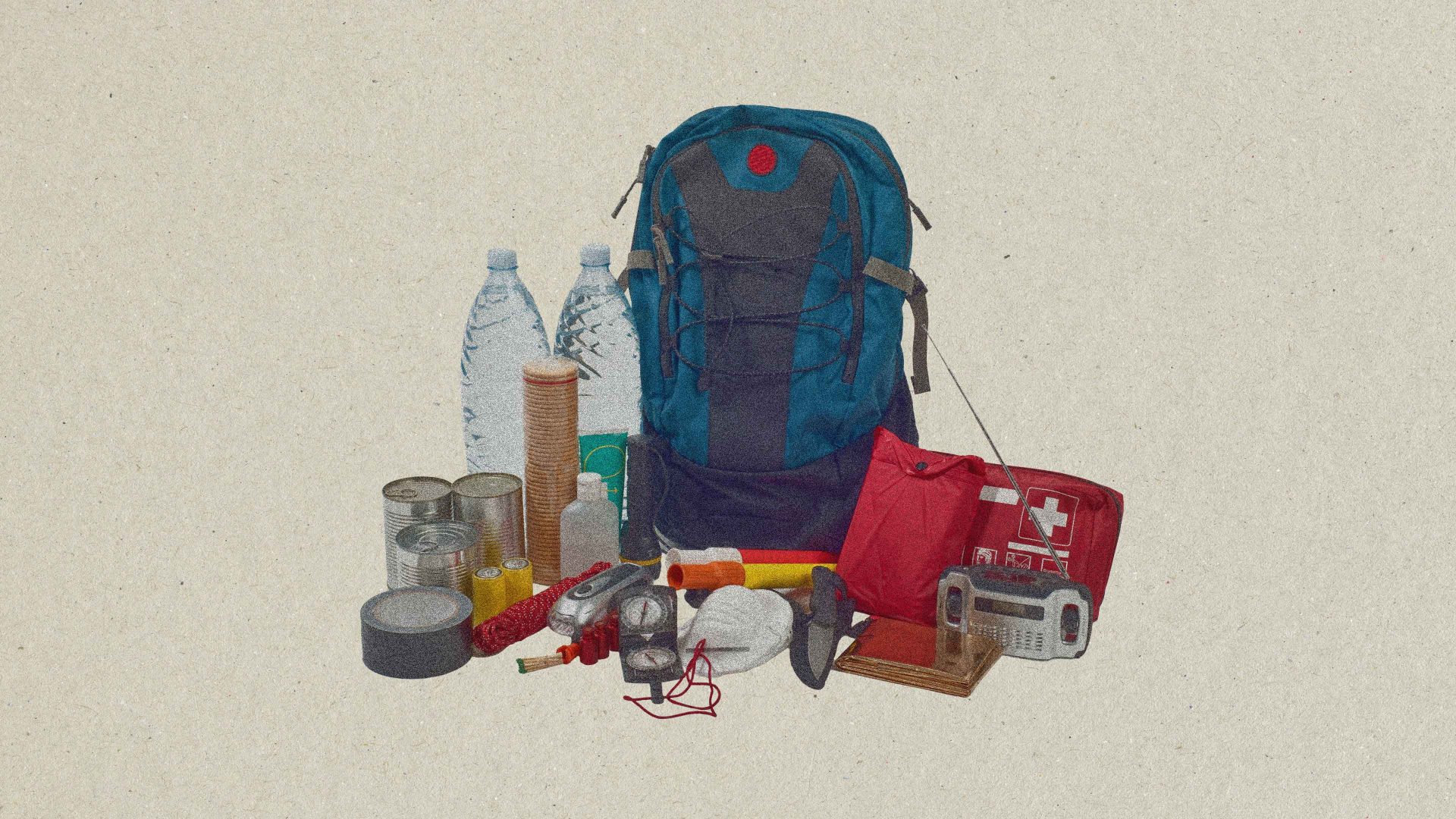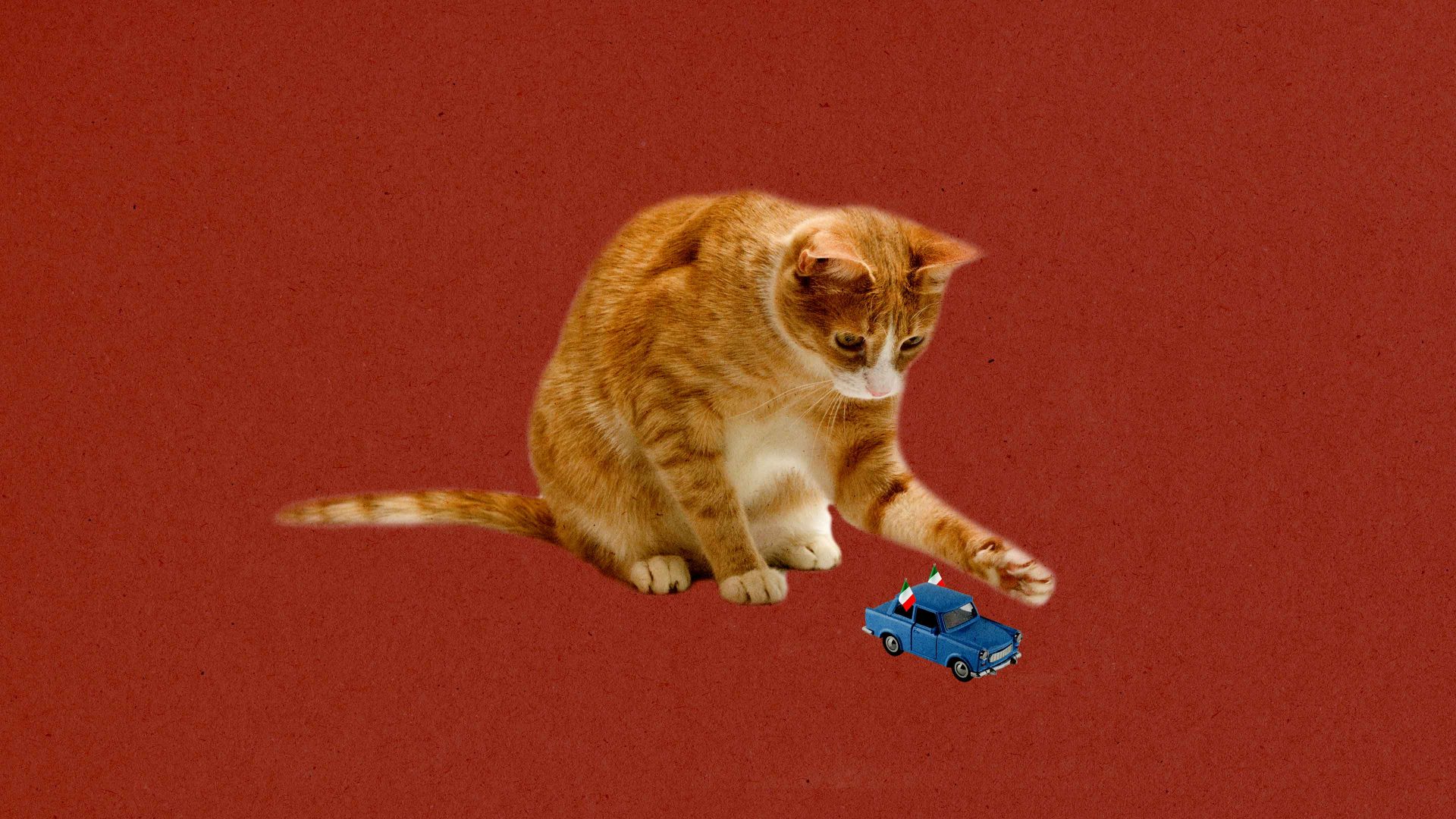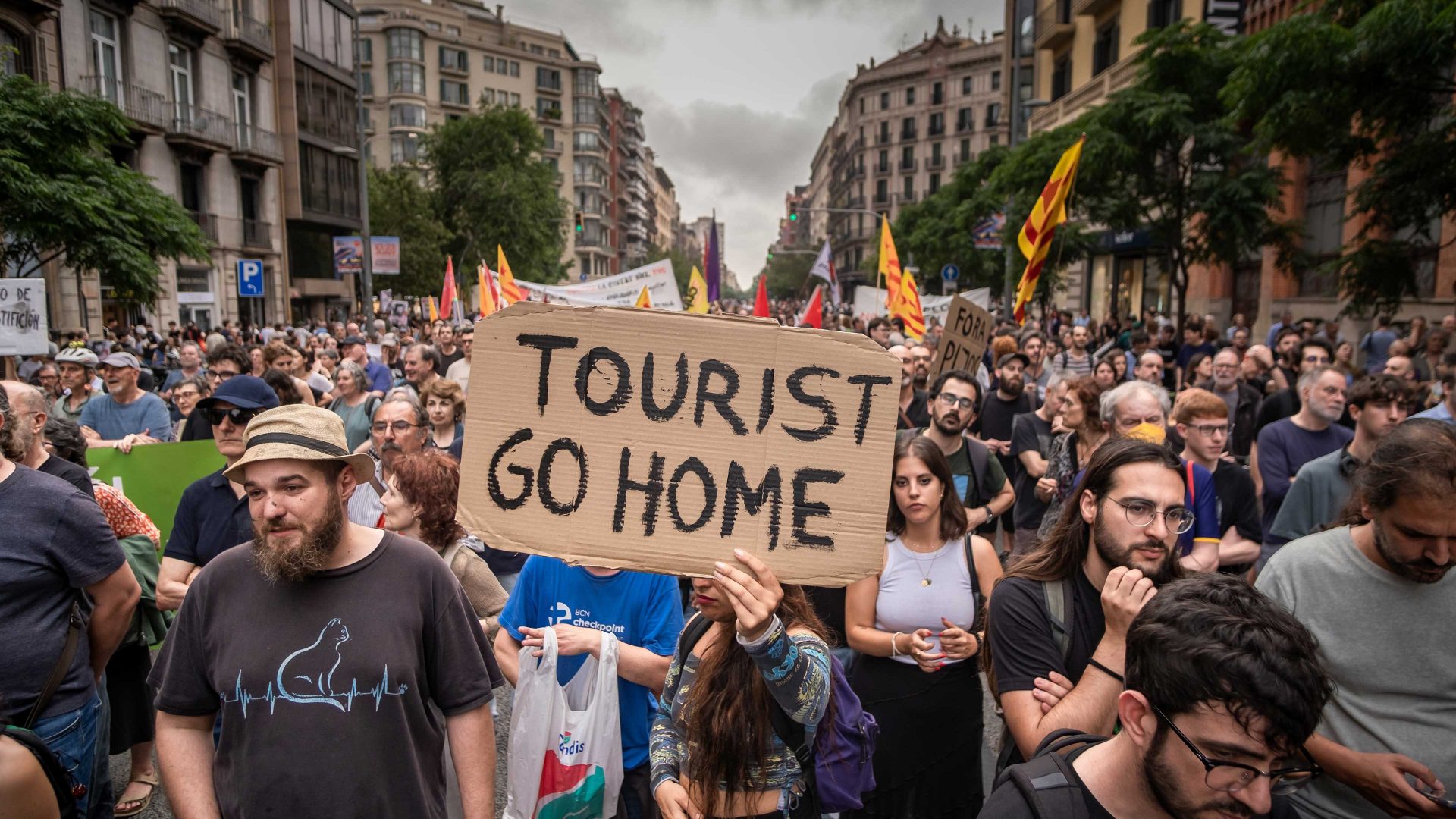Push open the door of Syrran & Jag, a village shop in Idre, a modest ski resort in northern Sweden, and you are greeted by candle holders made from reindeer horns and table mats printed with moose motifs.
At least, you were. A few weeks ago, the shop was drastically rearranged. Mugs reading “World’s Best Mum” and fluffy reminders of rural life were unceremoniously shifted to one side to make way for a wind-up radio, portable gas cookers and hunting knives. “It’s a prepper package,” says Kim Åslund, who runs the shop. “People came in saying they wanted to prepare for war.”
The customers at Åslund’s shop are not alone. Wind-up radios have become Sweden’s bestselling item and supermarkets have been stripped of canned goods, water purifiers and axes. Prepping has become one of Sweden’s fastest-growing trends. Related websites and podcasts are increasing in popularity and even the national pharmacy, Apoteket, launched a campaign promoting a skin cream used by the Swedish army in case people needed to spend time outside in an emergency.
While prepping is usually regarded as the realm of bearded loners hoarding tinned goods, crossbows and conspiracy theories, it has now entered the stripped wood, open-plan Nordic idyll that is everyday Swedish life. The people emptying Sweden’s shelves are not gun-crazy weirdos living in isolated cabins, but gym-fit young mums, picking up the children while planning for the coming war with Russia. Prepping in Sweden has gone mainstream.
The trigger for the generally amiable Swedes to put aside their pacificism and pick up their hunting knives has been the war in Ukraine, superheated by Sweden’s membership of Nato, which brought the possibility of conflict to a country whose last war ended in 1814. It has been neutral ever since, and for the past 200 years Sweden has known little more than prosperity and security, wrapped in the embrace of one of the world’s most generous welfare states.
But Nato has reminded Swedes that Russia is close. Its next-door neighbour, Finland, is also a new Nato member and has a 1,000km border with Russia. The idealism of yesterday has given way to realism.
This shift in a highly educated, generally rational Sweden to a more emotional fearfulness has been stoked by the army, the government and the media. In response to the invasion of Ukraine, military leaders and politicians gathered in Sälen, another ski resort, and made a series of blunt, doom-laden pronouncements.
The civil defence minister, Carl-Oskar Bohlin, said “there could be war in Sweden”, while the chief of defence, Micael Bydén, said the population needed to “mentally prepare” for war.
So they did. Traumatised teenagers flocked to TikTok to express their fears. BRIS, an organisation that represents children’s rights, reported that 20% of calls were from children worried about war. The government’s Civil Contingencies Agency said downloads of its brochure entitled If Crisis or War Comes soared by 900%.
The brochure features drawings of stoic families packing emergency goods next to tanks and infantry. The text is Churchillian: “If Sweden is attacked by another country, we will never give up.”
The media has done its bit to fan the fear, giving prominence to near-misses with Russian jets and more salacious tales of submarine sightings and a Beluga whale wearing a harness that was allegedly “Russian trained”.
Are Swedes overreacting? A new Swedish word has emerged, fredsskadad, meaning “peace damaged”, capturing the sense that, after 200 years of security, its citizens are unprepared for the brutal realities of today’s Europe.
But Swedes themselves point to a more nuanced explanation. “Our social contract is breaking down,” says Peter Stenborg, an IT specialist. He points to rising gang warfare in Sweden’s towns, drugs, violence in schools, bombings, the burning of the Qur’an and the rise of the far right.
Peter lives with his wife, Ulrika, and their sons in the postcard-pretty seaside town of Skärhamn, north of Gothenburg. They have an electric Volvo, a speedboat and a beautiful timber house overlooking the bay. They are as far away from Sweden’s violent housing estates as it is possible to be.
“At first I felt a little silly,” says Ulrika. “But then I started thinking about what we would have to eat, so I started building a larder. We used to be proud to be Swedish, it used to be good, but now it is not so good and it has all happened so quickly.”
Multiple generations of Swedes have grown up in prosperity and security, but today they are having to imagine social collapse. Elias Mellander, a professor at Gothenburg University, argues that the rise of prepping in Sweden is not just connected to war, but a coping mechanism to stave off a much broader range of anxieties linked to the rapid deterioration of Swedish society.
“We used to be safe,” says Stenborg. “Now we’re targets.”
David Ibison is the former Nordic Bureau chief for the FT



